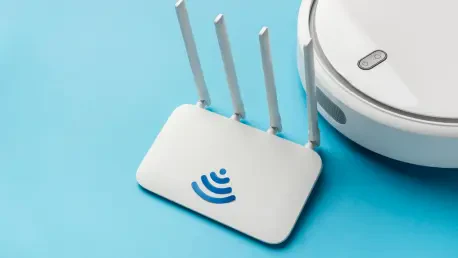
Hewlett Packard Enterprise (HPE) is leading a transformative wave in enterprise technology by harnessing the power of artificial intelligence to create self-driving networks, redefining how IT infrastructure operates in modern businesses. Through its innovative Mist Agentic AI-Native Platform and

In an era where network downtime can cost enterprises millions of dollars in lost productivity and revenue, the push for seamless, self-managing systems has never been more critical. Hewlett Packard Enterprise (HPE) is stepping up to this challenge with groundbreaking strides in network automation,

The telecommunications industry stands at a pivotal moment where the sheer volume of data generated by networks presents both a challenge and an opportunity, demanding smarter solutions to manage complexity and ensure reliability. With billions of connected devices and an ever-growing need for

What happens when factories don’t just produce goods but think, adapt, and communicate in real time? Across the globe, industrial landscapes are undergoing a seismic shift, driven by technologies so advanced they seem pulled from the pages of science fiction. From smart machines to hyper-connected

In the rapidly evolving landscape of telecommunications, Communications Service Providers (CSPs) are at a critical juncture where embracing network automation has become a cornerstone for survival and growth. With the integration of Artificial Intelligence (AI) and data-driven strategies, these

Imagine a scenario where wireless connections remain unshakable, even amidst the chaos of a packed stadium during a championship game or on a factory floor buzzing with robotic activity, and this vision is no longer a distant dream but the core promise of Wi-Fi 8, the next frontier in networking